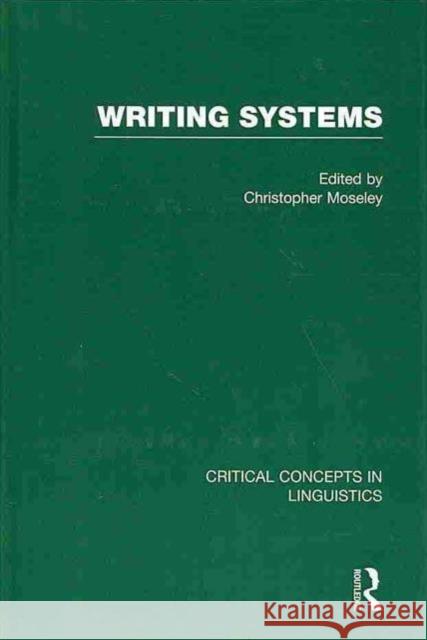Writing Systems » książka
Writing Systems
ISBN-13: 9780415520027 / Angielski / Twarda / 2013 / 1704 str.
Writing Systems
ISBN-13: 9780415520027 / Angielski / Twarda / 2013 / 1704 str.
(netto: 4056,50 VAT: 5%)
Najniższa cena z 30 dni: 4029,90
ok. 16-18 dni roboczych.
Darmowa dostawa!
Throughout most of the history of linguistics, the primacy of the spoken word over the written word has been virtually axiomatic. Scholars working at what is perceived as the core of linguistic science, on grammar, sociolinguistics, phonetics, phonology, have generally perceived the written word as merely the means of representing the true matter of linguistics, spoken language, with varying degrees of efficiency. Yet the written word has demonstrably shaped the course of languages, been the means of their maintenance or, under different circumstances, their downfall. Written language has been the means of holding speech communities together. Speech communities have become writing communities and, in doing so, gained hegemony over their less literate neighbours. Because writing has for so long and so often been treated as the poor relation of speech, the serious study of writing as a discipline itself has been relegated to disparate parts of the linguistic domain. It is only in the last fifty years that scripts and writing systems, their evolution and impact, have been the subject of scholarly works. Writing Systems aims at the widest possible sweep in collecting materials on the subject of written language and presents not only the latest research findings, but also anthologises writings on particular themes under each of these headings, both journal articles and longer works, extending over a long period of time. It provides an extensive bibliographical resource for scholars interested in pursuing the connections between the social, linguistic, historical, pedagogical, legal, and economic aspects of writing.











